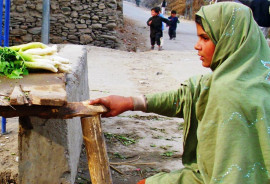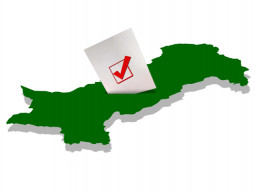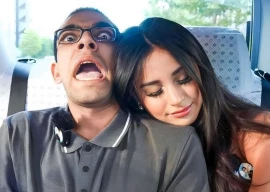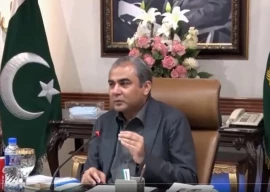
In the history of political participation and representation, women have either been under-represented or excluded. The notion of “private woman and public man” described patriarchal society in recorded history. In Fata, this notion is still working with greater impetus. Women have been denied participant roles in the political electoral system because of their perceived physical, intellectual and man-controlled honour complexes. According to statistical data, women constitute more than half of the total population of Fata. Gender imbalance in voter registration exists in tribal areas. Cultural norms forbid men to tell the names of their womenfolk to male strangers resulting in a shortfall of women voters in voters’ lists. Often, women are prevented from exercising their right to vote by families and local communities. Sometimes, women of a constituency are barred from casting their votes so that a heroic and “manly” contest may take place between the contestants. Women voters are also sometimes forced to cast votes for particular candidates favoured by male members of their families.
Due to the lack of female voter education in Fata, many votes are cast wrongly, resulting in cancellation of their ballots. Women’s access to knowledge about the voting procedure are further constrained by their limited exposure to election campaigns and media. They are marginalised by their high level of illiteracy, family responsibilities, cultural barriers and a wrong perception that politics is a masculine realm.
The restricted mobility of women is because of the notion of izzat (honour). Izzat is intrinsically linked to a woman’s behaviour. Since a woman is considered to be the keeper of the family’s honour, her mobility is strictly controlled. This is fine so long as such restrictions do not impede her rights — public representation, electoral rights and participation in the country’s political process.
Women take part in the formal electoral process at three levels: as voters, political activists and public representatives. Though no legal restriction exists on women’s role in the electoral process, stark gender discrepancies subsist at all three levels in the tribal areas. Challenging the status quo will be a Herculean task.
A feminist revolution in Fata took place on the day when in such a remote and gender-biased society, a woman came to the forefront to contest the general elections, not only for the rights of women but also for the improvement of the downtrodden lot. Ms Badam Zari, 40, is an electoral contestant from militancy-hit Bajaur Agency. In tribal areas, the level of women’s representation in political institutions does not correspond with their level of participation in the political process. To be blunt, women’s representation is extinct and participation is meagre. Only two per cent of Fata women exercise their right to vote, according to Zahidullah Afridi, a resident of the Khyber Agency. Mr Afridi further said, “However, Ms Badam Zari will receive votes on the basis of the gender divide. The women of Bajaur Agency will cast their votes in favour of her to express solidarity”. Mr Naeem Halimzai, a resident of Mohmand Agency, shares somewhat similar views saying that elections in Bajaur Agency are no longer a general election; “It’s now a gender-based election in which males will not cast votes for Ms Zari simply because she is a woman. And women will cast their votes for Ms Zari just because she is a woman”. Interestingly, when I spoke with a tribal woman on the prospects of victory for Ms Zari, she responded negatively. “In a male-dominated society, where women are like family property and even her say in family affairs is marginal, Ms Zari will lose elections”.
In the present sociocultural and electoral context of Fata, where the chances of leadership opportunities for women are extremely small, it is the responsibility of the state and people to spread awareness about female roles in governance. Women have been excluded from the electoral process for a long time. Any suggestion by which legislature seats are reserved for the brave women of Fata, like Badam Zari, will have its own dynamics and the potential to open up opportunities for more than half of Pakistan’s population — the women.
Published in The Express Tribune, May 6th, 2013.
COMMENTS (4)
Comments are moderated and generally will be posted if they are on-topic and not abusive.
For more information, please see our Comments FAQ




















































@citizen:
Everyone deserve democracy and freewill, those who oppose it deserve to be in jail.
reading all this make me think that we do not deserve democracy ! shame on us . We still living in 15th century .
Why cant the men understand that they are not voting for individual men or women but the party as such. They can read the party manifesto and vote for that candidate backed by that party . What difference does it make if its a man or a woman or whatever caste/ religion the candidate belongs to .
Isn't it too late to be talking of this matter. What were we doing when something could have been done to remedy the shortcoming? If there is no remedy why are we talking about it at all?
We seem unable to look anywhere other than the rear view mirror. Some time we go as far back as a thousand four hundred years!